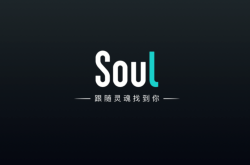Honor Seeks 'Change': Pioneering in the Red Ocean and Grounding the Blue Ocean Narrative
![]() 06/16 2025
06/16 2025
![]() 661
661

The competitive landscape of the domestic smartphone market is generally stable. Although it has been dominated by Apple, Huawei, Xiaomi, OPPO, Vivo, and Honor for years without new entrants, there are frequent changes in ranking positions.
In particular, Honor's position has changed significantly. According to Canalys data on smartphone shipments in China in 2023, Honor ranked first among domestic brands with a market share of 19.3%.
However, with Huawei's return and market share growth, other brands are bound to cede market share. Amidst this give-and-take, Honor's market share fell to 15% in 2024, ranking fifth. By the first quarter of this year, Honor had fallen out of the top five with a market share of 13.7%, falling into the 'others' category.
Recently, Wang Ban, President of Sales and Services at Honor, posted, 'On the occasion of the first sale of the Honor 400 series, I heard that a competitor internally issued a notice to destroy Honor and prevent its comeback. Whether we make a comeback does not depend on anyone else but on whether we do the right things. Honor can only rely on itself, our authenticity, our openness, and our unity.'
This statement is very 'Honor'-like and reflects the fierce competition in the smartphone terminal market.
At the beginning of the year, Zhao Ming, a key figure at Honor, resigned, and Li Jian took over the leadership, raising the new banner of Honor. As of now, Li Jian has been in office for half a year. He chose the launch of the mid-range model Honor 400 as his public debut in China, signaling Honor's return to focusing on the mid-range market.
In addition to the above changes, Honor is also continuously increasing its investment in the AI ecosystem and accelerating its overseas expansion. Under the new market situation, Honor has been seeking 'change'.
"Valiant General" Li Jian
In the past few years, many people regarded Honor as a 'replacement' for Huawei, becoming the choice for many Huawei fans when purchasing smartphones. Honor's market share once reached the top among domestic brands.
However, with Huawei's strong return, its Mate and nova series have significantly squeezed the entire mid-to-high-end smartphone market. Over the past year and a half, Honor has continuously ceded market share.
According to Canalys data on smartphone shipments in China, Honor's market share has shown a clear downward trend, from 19.3% in 2023 to 15% in 2024 and then to 13.7% in the first quarter of this year.
Furthermore, with the resignation of Zhao Ming, a key figure at Honor, and a large-scale adjustment of the senior management team in China, new CEO Li Jian was appointed amidst the crisis, bringing a series of changes.
In fact, Li Jian is not widely known in the consumer electronics field. However, as a 'valiant general' in Huawei's overseas market, Li Jian became famous after a battle in Nigeria.
In October 2017, Huawei's official Weibo account of the Voice of Huawei community mentioned Li Jian's experience in Nigeria: In three months, he signed contracts worth over USD 30 million, and after a year, he signed contracts worth nearly USD 200 million, reaching over USD 400 million in the third year. Since then, Li Jian has held various important positions at Huawei, such as President of the Western Africa Region, President of the Europe Region, and more, with rich global experience.
Afterwards, Li Jian held multiple key positions at Huawei, including Special Assistant to the President of the Sales and Services System, President of the Customer Group and Regional Business Support Department, and member of the Human Resources Committee. In 2017, Li Jian joined Huawei's Board of Supervisors, participating in major reforms and strategy formulation, accumulating rich experience in top-level design. In 2021, he joined the independent Honor, holding important positions such as Vice Chairman, Director, and President of the Human Resources Department.
With a technical background, practical experience in the global market, and a strategic vision, Li Jian's nearly all-round managerial traits make him the 'valiant general' that Honor, which is deeply entrenched in the red ocean and urgently needs to break through in globalization and new markets, desires the most.
The outside world also views Li Jian's leadership as a key signal for Honor's strategic transformation, aiming to reverse the market downturn and rebuild capital market confidence during the crucial IPO period.
Peng Qiuen, CFO of Honor, recently stated that Honor has completed its shareholding reform and is preparing for pre-IPO work. It will consider factors such as the market, regulation, and corporate development strategies to find a suitable time for the IPO.
Undoubtedly, a suitable IPO timing also requires Honor to deliver a satisfactory answer to the market.
Facing the current situation, Li Jian acknowledged that Honor has faced significant sales difficulties since the second half of last year, but he did not feel anxious. He explained, 'In the first half of the year, the mobile phone industry released 59 new products, while Honor only released 2, and they were only launched in April. Under such circumstances, maintaining a 13% market share is very challenging for the team in China.'
It is reported that Honor has internally set a goal of returning to the top three domestically by the end of the year. To achieve this goal, Li Jian faces considerable challenges, and strategic deployment is particularly crucial.
Focusing on the Mid-range and Telling New Stories with AI and Overseas Expansion
Faced with weak sales, Li Jian's changes are clear and pragmatic, with the primary task being to stabilize the basic market.
He chose the launch event of the mid-range model Honor 400 series as his public debut in the domestic market. This launch event was also seen by the outside world as a sign of Honor putting aside its 'obsession with high-end' and returning to the real battlefield. As the first work to return to focusing on mid-range models, the Honor 400 series configuration can be described as 'transcending its class': a 7200mAh 'Qinghai Lake' large battery, a 200-megapixel main camera, the standard version equipped with the Snapdragon 7 Gen4, and the Pro version directly featuring the full-blooded Snapdragon 8 Gen3, making it highly competitive in the 2000-3000 yuan price range.
The marketing strategy also showcases a 'grounded' approach: outside the stores were huge advertisements featuring endorser Xiao Zhan, and its release date was strategically placed the day before the college entrance examination, attracting many parents to purchase new phones for their children after the exam. Inside the stores, screens looped the slogan 'With Honor, to Prestigious Universities', and even high-end flagship counters displayed glowing lightboxes of 'Honor 400'. To broaden the user base, Honor prepared four types of exclusive reservation gift boxes, covering student and fan groups.
The strategy produced immediate results, with sales on the first day of the Honor 400 series' launch surging by 195% year-on-year compared to the Honor 300 series and by 138% compared to the Honor 200 series, breaking the first-day sales record in nearly three years.
This gave the Honor management team sufficient confidence. Li Jian believes that 'the Honor 400 series may be a turning point in the company's mobile phone sales,' and he indicated that the new sales curve is expected to start rising in June and July.
In addition to relying on the Honor 400 series to turn the tide, Honor is also telling a more imaginative future story to the capital market, namely the AI ecosystem and globalization.
Earlier this year, Honor announced the 'Alpha Strategy' with fanfare: investing USD 10 billion over the next five years to build an AI ecosystem covering mobile phones, computers, tablets, wearables, and new-form factor terminals.
Two months later, with the bombshell news of 'entering the robotics industry,' Honor announced that it defines itself as an 'AI terminal ecosystem company.' The company structure was subsequently adjusted, with the establishment of the 'AI & Software Business Department' as a first-level R&D department, along with new departments for expanding new business models and incubating new industries.
At the new product launch event at the end of May, Li Jian showcased the story of his employees' robot research and development and officially announced that Honor has entered the robotics industry. It is understood that the robot showcased by Li Jian at the launch event has a running speed of 4m/s, breaking previous industry records for robots.
Honor has not yet clarified specific technical development directions and launch timelines for robots. In the short to medium term, it is more about demonstrating determination and future imagination to the capital market.
Globalization is another lifeline for Honor. At the end of 2024, its overseas sales exceeded 50% for the first time, equaling its domestic market share. At the beginning of 2025, Honor made a high-profile entry into the Indonesian market. In the first quarter, Honor achieved shipment growth in Latin America and Africa.
Li Jian's deep overseas experience will help Honor smoothly embark on the path of globalization. Unlike many brands that choose low prices to capture the market, Honor has consistently adhered to a high-end route overseas, focusing on the market above USD 300 and directly competing with global benchmarks such as Apple and Samsung. Even in markets like Indonesia, Honor refuses low-price strategies, shaping a high-end image through the layout of self-operated experience stores and online-offline collaboration.
Data shows that since the Honor 400 series started pre-sales overseas, the number of pre-orders has reached 2-3 times that of the previous generation. It is reported that Honor plans to launch new foldable phones and high-end flagship Magic series in the second half of the year. This not only fills the product gap from the first half of the year but is also a crucial part of its overseas narrative. By then, the true test of Honor's overseas strategy will arrive.
Three Major Challenges Ahead
However, Honor's path to transformation is not smooth, and there are still three major challenges ahead.
The first is the shackles of brand recognition. Although it has been independent for four years, Honor has rebuilt its supply chain and completed financing and R&D layout, but the label of 'Huawei replacement' remains ingrained.
In the fiercely competitive smartphone industry, the market lacks patience, and changing consumer perceptions also takes time. Honor needs to quickly establish its brand recognition, cultivate user loyalty, and build genuine brand momentum. AI is merely a tool but far from sufficient to build Honor's iconic label.
The second is the 'right timing' for the IPO. After completing its shareholding reform, Honor already has the foundation for an IPO but is waiting for the 'right timing,' which includes the effectiveness of strategic transformation, stabilization of performance, and favorable market sentiment.
Currently, the valuation logic of capital markets for technology enterprises is changing. Investors are now more concerned about the commercialization potential of AI technology and globalization profitability. Honor still needs to improve in indicators such as AI revenue share and overseas profit contribution. Balancing short-term performance and long-term investment before the IPO tests the operational wisdom of Honor's management.
The third is the pressure to deliver on new markets, which is how to tell a growth story of 'AI + Globalization.' In Li Jian's view, the smartphone market is already a mature market and will not experience high growth rates of 10%-20% like before.
Li Jian said, 'The mature market is first a red ocean battle, with intense competition as smartphones evolve from a single function to full-scene applications; second, it is a blue ocean battle, with future opportunities carried by AI restructuring the terminal industry. In the AI era, various AI terminals will come to market. We are now collaborating and sharing with major companies to build an AI terminal ecosystem company.'
However, although combining with AI is seen as a blue ocean, competitors such as Apple, Huawei, Xiaomi, vivo, and OPPO are also making efforts in the AI field. Honor faces strong competition from other smartphone manufacturers in differentiating its AI offerings; the humanoid robot project has a promising future but a long road to commercialization; and the high-end overseas strategy faces strong competition and needs to truly establish a foothold. All of these require the Honor team to demonstrate superior strategic planning capabilities and execution.
To this end, Li Jian is attempting to build a '433' offensive formation for Honor, namely four mindsets of AI thinking, ecological thinking, user thinking, and business thinking; three drivers of user-driven, innovation-driven, and competition-driven; and three main lines of change in technology transformation, industrial transformation, and ecological transformation. This will be used to advance Honor's transformation and rebirth.
Conclusion
From a smartphone manufacturer to an AI ecosystem builder, from domestic breakthroughs to global conquests, in the deep waters of smartphone competition, Honor is undergoing a profound transformation.
The path that Honor is taking and the stories it is telling about AI and overseas expansion need to inspire itself and surpass its competitors. There are international giants like Apple and Samsung ahead, and formidable opponents like Huawei, Xiaomi, OPPO, and Vivo behind. If Honor wants to truly reborn, it must pioneer in the red ocean while solidly grounding the grand narrative of the blue ocean.





